A Witness to the Life and Martyrdom
of Friars Michał Tomaszek and Zbigniew Strzałkowski
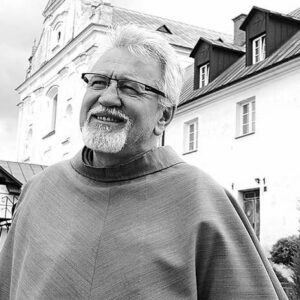
Introduction
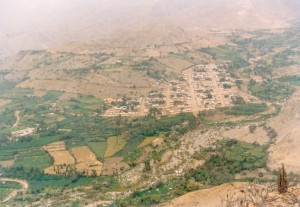
In 1991, after six years of prayer and waiting, Bishop Luis Bambaren announced in a letter to the faithful, that the Diocese of Chimbote in Peru had the joy of receiving their first Conventual Franciscan missionaries from the Province of Saint Anthony in Cracow. We opened our friary in the town of Pariacoto on August 30, 1989. Our mission was the pastoral care of four rural parishes (Pariacoto, Yaután, Cochabamba and Pampas Grande) in the Black Mountain Range. (Click on pictures for a larger view.)
Our joy at our arrival was great, all the more so because we were conscious from the beginning that we had been long awaited, since for many years no one had announced the Good News of Jesus in the region. Our pastoral plan to form Christian communities, create a school for catechists and engage in pastoral visits was received with zeal and enthusiasm. We were aware of the difficult living conditions in communities more than 2000 meters above sea level, with very bad roads, almost all of them unpaved. Most of them were only accessible by horse or mule. Sometimes the journey could take twelve or more hours.
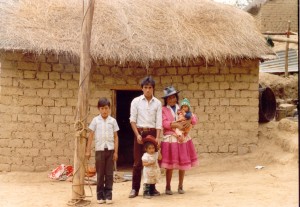
The people soon won our hearts. We focused on building healthy fraternal relationships among ourselves and between us and the people. We didn’t have to wait long to see the fruits of our work. Many people desired to deepen their faith and get involved in pastoral activity, and day by day the number of volunteers grew. Because of the solidarity among the people, which was rooted in their poverty, projects for everyone’s social welfare developed rapidly. The seed of the good news was growing in the hearts of the peasants and the witness of Christian life sprang up in communities, especially among children and young people.
Unfortunately, it was not a good time for Peru: the seeds of terrorism had been sown and produced much hatred, and with the participation of foreign elements, the soil was stained with the blood of martyrs – Fathers Michał and Zbigniew, and two weeks later Alessandro Dordi, a priest in Valle del Santa in the Diocese of Chimbote – and with the deaths of many other Peruvians and foreigners.
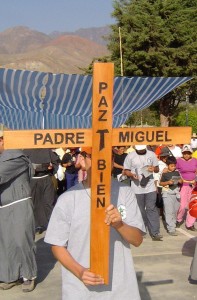
“Peace and Good”
I felt intense sadness and deep pain then, and it is still difficult to narrate all that I experienced in the deaths of my brother friars. I was not in Pariacoto at that time; I was in Poland when I heard the sad news on television. Over the years I have seen that God’s ways are not our ways (Is 55:9), but He is present even when He seems hidden in the circumstances of death: “Unless a grain of wheat falls to the ground and dies, it remains just a grain of wheat; but if it dies, it produces much” (Jn 12:24).
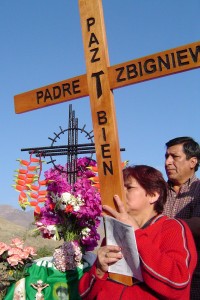
2005
They killed the two friars — my brother missionaries — without any compunction; the murderers apparently wanted to obliterate our current and long-term pastoral projects. But God has His ways and the Cross of Christ is always life! It quickly became apparent that though the lay people were threatened by the terrorists, they would not abandon the Eucharist, but with greater enthusiasm they carried out their apostolic projects, growing in faith, even when the priests were not personally present among them.
The sick people called Zbigniew “our little doctor”; they tell all the ways he helped people get better, sometimes only by giving them words of hope. In a way, he did as Jesus did: He laid hands on them so that they recovered their health and lived (cf. Mk 5:23).
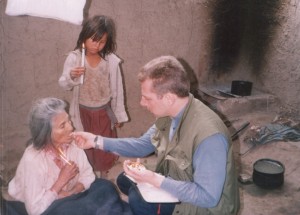
Children and young people just loved Michał — called in Peru Miguel. They still visit his sepulchre and hold in their hearts the things he taught; with their songs they make a prayer of praise and gratitude for him.
We hope that our first martyrs will join the communion of saints from Peru: Miguel, Zbigniew and Sandro, who already are “Servants of God” and whose beatification process is underway. [Fr Michał and Fr Zbigniew were beatified in Peru on 5 December, 2015. Ed.]
Finally, I want to share the thought that the martyr’s death of my brothers was an extraordinary grace that they received from God. They left us the legacy of fidelity to the will of God, their witness to the truth which led them to surrender their life and shed their blood for Christ and for the souls that He entrusted to them. It is admirable how they carried out our great goal of mission to its last consequences: “Let us do good to all, but especially to those who belong to the family of the faith” (Gal 6:10).
Loving to the Point of Giving Your Life
Fathers Michał Tomaszek and Zbigniew Strzałkowski were murdered by Shining Path guerillas in Pariacoto, Peru, on August 9, 1991. Both of them were Conventual Franciscan friars from Poland. Miguel was 31 and Zbigniew 33. From the day they arrived in Peru two years before, they had dedicated themselves to serving the people with both hands — with the Gospel and charity — in order to restore to them the dignity of the sons and daughters of God. They loved to the point of giving their lives, following in the footsteps of Jesus, in the way of St. Francis of Assisi and following the example of the martyr of Auschwitz, St. Maximilian Kolbe.


In their lives, they fulfilled the words we read here:
There is no greater lover than this: to lay down one’s life for one’s friends.
Jn 15:13
Hold back nothing of yourselves, that He Who gives Himself totally to you may receive you totally!
Saint Francis, A Letter to the Entire Order, 2
Prepare to serve the Immaculate. May she find you at her side, ready for anything. Don’t be afraid of suffering, of humiliation, of the most difficult missions, of wearing yourselves out totally, even of martyrdom.
Maximilian Kolbe, Mugenzai no Sono, May 17, 1934
Two Lives for the Mission
Zbigniew Strzałkowski
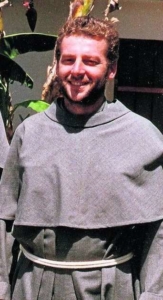
Zbigniew was born in Tarnów on July 3, 1958, and was baptized in the cathedral there a week later. In 1967 he received his First Communion. After primary school, Zbigniew went to technical school in his hometown and began to work at age 20. A year later he entered the novitiate of the Conventual Franciscan friars. From 1980 to 1986 he studied philosophy and theology in Cracow. On December 8, 1984, the Solemnity of the Immaculate Conception, he professed solemn vows and on June 7, 1986, at age 28, he was ordained a priest in Wrocław.
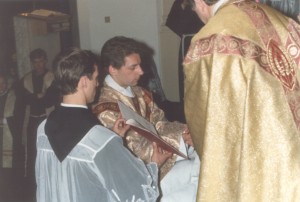
St Charles Borromeo Church, Wrocław
June 7, 1986
For two years he worked as Vice-Rector of the Conventual seminary in Legnica. Then, on November 30, 1988, the Feast of Saint Andrew, he traveled to Peru to work as a missionary. Two years later, on August 9, 1991, he was killed along with Friar Miguel in Pariacoto. Brother Zbigniew had a gift for organization and was very responsible. He loved nature. His desire to serve others flowed from his deep faith and his desire to follow the example of St Maximilian.
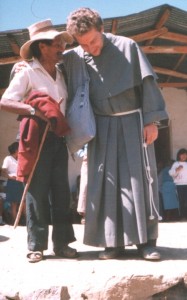
Michał Tomaszek

Michał Tomaszek was born on September 23, 1960 in Łękawica and was baptized a month later in St. Michael’s Parish there. He was already an altar boy when he received his First Communion in 1969. His father died that same year. At age 15, he entered the Conventual Franciscans’ minor seminary in Legnica. He stayed there until 1980, when he began the novitiate in Smardzewice. On October 4, 1980, the feast of St. Francis of Assisi, he was clothed with the Franciscan habit for the first time and a year later he professed temporary vows.
After taking temporary vows, Brother Michał studied philosophy and theology at the Conventual Franciscan seminary in Cracow, where he defended his thesis on moral theology two years after having made his solemn profession. He was ordained a priest on May 23, 1987, when he was 27. For the next two years he worked as an assistant in the parish church in Pieńsk. Full of excitement and enthusiasm, Michał left for Peru as a missionary on July 25, 1989, the feast of St. James.
His missionary activity lasted just two short years, because on August 9, 1991, when he was only 31 years old, he was murdered in the town of Pariacoto, along with his fellow missionary, Brother Zbigniew. Three days later both were buried in the parish church at Pariacoto and on June 5, 1995 their beatification process was opened.
Fr. Miguel was a man of deep faith, simple and prayerful, evangelical and generous. He had a great love for the Blessed Virgin and touched children and young people especially through his great gift for music.
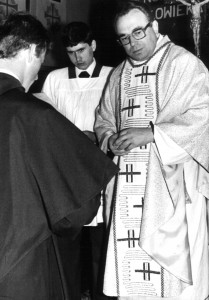
Receiving the Franciscan Habit
October 4, 1980
Francis of Assisi Is Our Father
The Conventual Franciscans are the original foundation of the Order of Friars Minor, founded by St. Francis of Assisi in 1209. As such, Franciscans live:
- in community as brothers, a sign of the action of the Holy Spirit;
- in equality (in a society of inequality or VIPs), where the authority is service;
- in detachment (evangelical poverty), with God as their only treasure and their Lord;
- as “Lesser Brothers,” with an attitude of reverence towards every creature for love of God;
- without a stable home, but as “pilgrims and strangers” in this world;
- in contact with the daily life and work of the people, sharing the skills and work of each of the friars;
- in preaching penitence, more by example than in words;
- in missionary, ecumenical, and intercultural apostolates; listening, learning, and analyzing the changing signs of the times.
America, a Franciscan Continent
The Conventual Franciscans are the original foundation of the Order of Friars Minor, founded by St. Francis of Assisi in 1209. As such, Franciscans live:
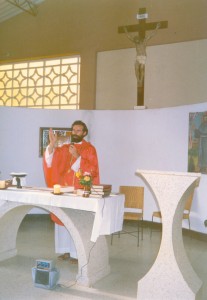
- 1946 Rio de Janeiro (Brazil)
- 1947 Buenos Aires (Argentina)
- 1949 Santo André (Brazil)
- 1950 San José (Costa Rica)
- 1969 Marañao (Brazil)
- 1970 Gualaco (Honduras)
- 1974 Uruaçu-Goiás (Brazil)
- 1977 Montero (Bolivia)
- 1977 Valle de Aragón (Mexico) and Medellín (Colombia)
- 1978 Guanare (Venezuela)
- 1989 Pariacoto (Peru)
- 1992 Asunción (Paraguay)
- 1994 San Salvador (El Salvador)
- 1995 Santo Domingo de los Tsáchilas (Ecuador) and Copiapó (Chile)
- 2001 Matanzas (Cuba)
The Beginning of the Mission in Peru
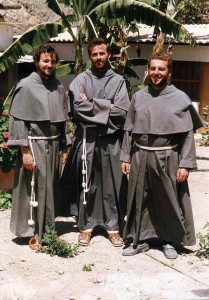
The Province of Cracow officially and definitively decided to establish a new mission in Peru, sending three missionaries. Zbigniew Strzałkowski and I – Jarosław Wysoczański – arrived on December 2, 1988, and Friar Miguel Tomaszek arrived on July 25, 1989.
Brother Zbigniew and I lived apart from each other during the first months, in order to adapt ourselves to the place, learn the language, know and understand the culture and piety of the local people.
In the beginning we hoped to get to know the rural farm folk and the people of the city of Chimbote, become part of the local Church, and learn Spanish and Quechua. We aspired to become deeply acculturated.
A diocesan priest named Paul Fink who had worked in Moro for many years, had a profound influence on Friar Zbigniew, introducing him to the Peruvian culture and worldview. I, for my part, had the opportunity to observe and participate in the pastoral project of the Diocese of Chimbote, accompanying the bishop and other people who worked in the diocese.
Another major challenge in that period was to get to know the history of Chimbote, which was steadily growing, and of the diocese which had recently held an International Theological Convention on the topic “Hunger for God and Hunger for Bread,” inspired by the words of Pope John Paul II, “May you be hungry for God, even more than for the daily bread”. Slowly, progressively, we became familiar with social problems (violence, injustice, terrorism, poverty, migration from the mountains to the city, etc.) and some important emerging ecclesial phenomena: popular piety, CEB’s (ecclesial base communities), organization of Caritas, and so on.
After an initial exposure to life in Peru, we left for the town of Pariacoto, where on August 30, 1989 we three friars officially took on the mission. That day was the feast of Saint Rose of Lima, the first American saint and the patron saint of Lima and of Peru. To understand better our missionary effort in Pariacoto, I want to recall the inspiring words of St. Francis in his Earlier Rule:
The Lord says: Behold I am sending you like sheep in the midst of wolves. Therefore, be prudent as serpents and simple as doves…. As for the brothers who go, they can live spiritually among the Saracens and nonbelievers in two ways. One way is not to engage in arguments or disputes, but to be subject to every human creature for God’s sake and to acknowledge that they are Christians. The other way is to announce the Word of God, when they see it pleases the Lord, in order that [unbelievers] may believe in almighty God, the Father, the Son, and the Holy Spirit, the Creator of all, the Son, the Redeemer and Savior, and be baptized and become Christians because no one can enter the kingdom of God without being reborn of water and the Holy Spirit (ER XVI: 1-2, 5-7).
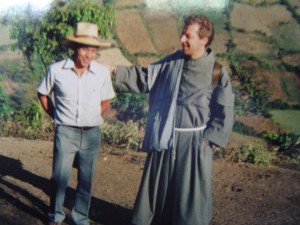
We reached the Pariacoto mission with few resources, and thus the circumstances compelled us to be more dependent on others. Our attitude aroused the curiosity of the peasants, who have an amazing capacity for observation. Our simple and austere lifestyle facilitated communication and interdependence from the outset. We experienced “being with the people” in every way.
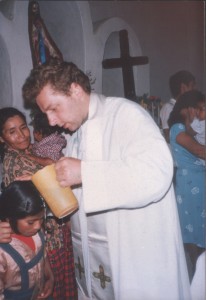
Francis admonished and exhorted his brothers that, “when they preach, their language be well-considered and chaste for the benefit and edification of the people, announcing to them vices and virtues, punishment and glory, with brevity, because our Lord when on earth kept his word brief” (LR IX:3).
Faithful to our missionary vocation, we followed the pastoral guidelines given by the local bishop. We were “among the people”, and when we preached the Word, it was in obedience to the mission we had received from the bishop. Our first concerns were to organize the school for catechists, visit communities, and prepare people for the sacraments, etc., as we attempted to respond to the daily needs of the people, especially the poorest.
Implementing the spirit of the conferences of Medellin and Puebla in the mission at Pariacoto
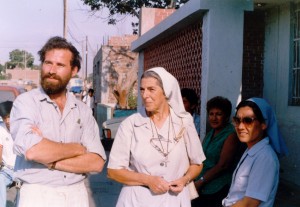
In 1970 Peru had been hit by a major earthquake. On the occasion of this natural disaster the Conference of Religious (CONFER) had requested that the different religious congregations go to live in the most affected areas. One of the villages most devastated by the earthquake was Pariacoto. The Sisters of the Congregation of the Handmaids of the Sacred Heart were the first to respond to the call and go to those people who were hungry for bread and for God. Sisters Virginia Puertas, Julia Oliveri, Ana María Chávez and María Elena Reaño lifted the people from the rubble and from their prostration through their encounter with the word of God. They built the church of Pariacoto. Both those missionaries and the ones who followed were much loved by the people because they were so close to the people and because they were communities with open doors.
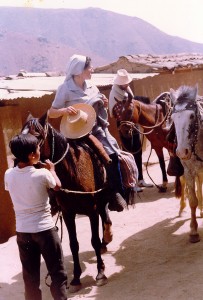
The sisters truly embodied the “preferential option for the poor” articulated at the episcopal conferences of Medellin and Puebla. Their zeal, their authenticity, and the enthusiasm of their religious life was catching; it certainly inspired us when, for many months, hunger brought us to share their table. By this time a new team of sisters had arrived in Pariacoto, Sisters Nuria Soronellas, Superior; Marlene Trelles, responsible for postulants; Ana María Chávez, Luz Molina, Carmen Rosa Silva, and postulants Rosa Alban and Zulema Vásquez. It is amazing how we experienced, through them, the values of the Peruvian world: welcome, closeness, hospitality. Where there is food for one person, it is willingly shared with four more, because they completely believe in God’s Providence. The sisters embodied those Peruvian values. We young friars, who started a mission in a world so different from our own, tried to accept, learn and share the values of the everyday life of the sisters and of our new Peruvian friends.
Poverty leads to Brotherhood
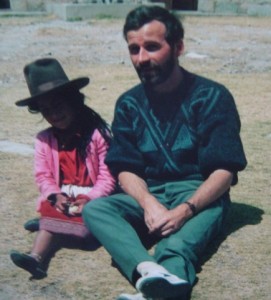
We found it very gratifying when the peasants, especially young people, found us to be simple and humble people who, like them, didn’t have all we needed. Thus we began to share a lot in common; we felt like family and treated each other as such. In those days Friar Miguel shared some beautiful stories with various correspondents. In a letter to his mother and siblings on August 20, 1989 Miguel wrote:
- The people are very good. The children shout greetings to us, even when we have already seen them several times during the day. There are many young people who constantly come to the church. Nobody here plays the organ, but the young people do very well with their own instruments.
- They have a few guitars and a flute (very different than in Poland – I’m learning to play it); they play an instrument made of sugar cane (sounds nice), native drums from hollowed-out logs, something that resembles a large seed pod, about 18 inches, with dry ‘beans’ inside.
- They sing beautifully and harmoniously. We have Mass every day at 8 p.m., because during the day just about everyone is working in the fields or in their gardens. The same thing happens on Sundays; everyone works. (Incidentally, Zbyszek and the local kids brought almost a ton of gravel from the river today, Sunday, to lay the bricks in different parts of our house. This work is not a sin here.)
During a course on Franciscan spirituality in Argentina, Friar Miguel wrote to a friend:
- “The nice thing is that I can communicate with everyone…. [O]n 29 January I will return to the Peru; to be honest, I miss Pariacoto and ‘my’ people.”
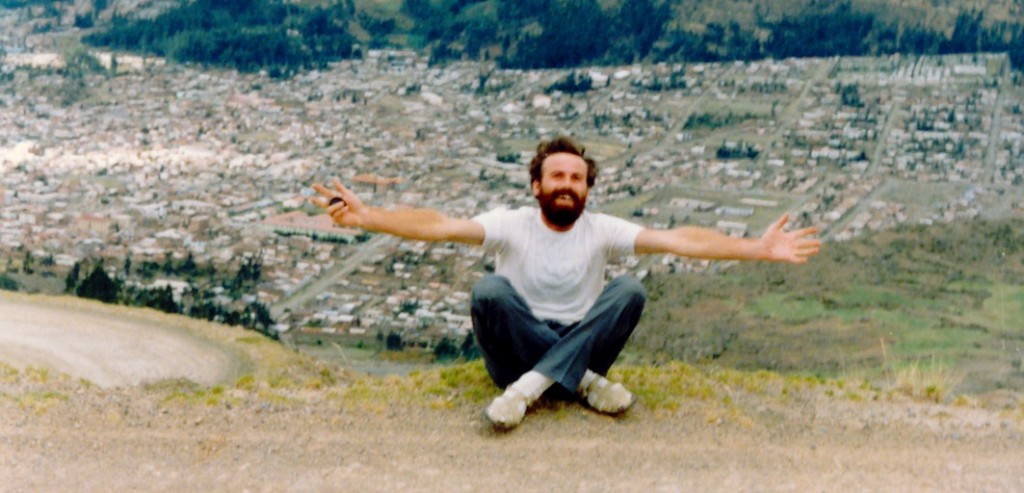
Despite the great difficulties at the beginning, we remained faithful to our missionary project, which aimed to introduce the Franciscan way of life. In his letter to Bishop Luis Bambarén on January 15, 1989, Friar Lanfranco Serrini, the Minister General of the Conventual Franciscans at the time, wrote:
“The Order is happy to have begun this new mission in the Diocese of Chimbote in Peru. We feel that Providence guided us through the difficulties in recent years. The work of the Lord requires carrying lots of crosses; but it is so beautiful to see that precisely in those crosses is life’s secret. In this case, the life of our mission has every virtue of Franciscan life: simplicity, poverty, hidden life, brotherhood, a spirit of service…, which we wish[ed] to make present thanks to these Polish missionaries.”
Pariacoto, a Town in the Peruvian Andes
The Mission of Pariacoto, located in the Peruvian Andes, includes five parishes with 70 small towns located at an altitude of between 600 and 4,000 meters above sea level, spread over an area of more than 1,000 km2, with a population of more than 10,000.
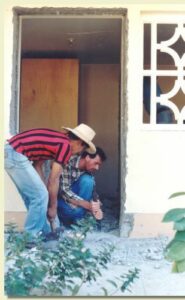
Those living in the lowlands are mainly farmers engaged in cultivating various types of fruit trees. Above 1,400 meters there is a mountainous desert where cultivation and irrigation are difficult. Drought often destroys crops and kills animals.
On their arrival in 1988, the Polish Conventual missionaries found a very poor region, endangered by growing terrorism in Peru. The church and friary buildings needed to be adapted to the needs of our Franciscan community. With the support of women religious present in the area, the friars planned educational activities, communal aid, evangelization, catechesis, and various cultural and recreational initiatives.
Almost immediately, with the help of local and international aid organizations, the missionaries helped provide drinking water and health services, and developed a program of preventative health and medical care with the help of doctors and nurses.
Letters from the Heart
Fathers Miguel and Zbigniew left behind only a few written texts, because they had no reason to imagine that it could soon be their time to “leave this world and go to the Father” (Jn 13:1). But it was the hour appointed by God.
- The people are very good….” – Fr. Miguel, letter to his family, August 20, 1989
- “The people have a particular way of looking at things. These people’s eyes are a little sad and nostalgic, but at the same time contemplative. It’s hard to get to the bottom of the soul of these people. They are very sincere people, especially when one is alone with them.” – Fr. Zbigniew, letter to Dorota Wieczorek, May 5, 1991
- “You are not where you are now to understand the world, but to understand what the will of God is for you. It is a matter of being where you are supposed to be.” – Fr. Miguel, letter to Janusz Krużycki, March 22, 1991
- “Everything here seems to be peaceful – reminds me of boiling bean soup. Fortunately God is on top of everything, and we are here to proclaim his Word. Since August 30 we are officially in Pariacoto.” – Fr. Zbigniew, letter to a seminarian, December 2, 1989
- “I am a happy priest, thanks to many people I met in my formation. Overall, I am very well received. I can feel it over and over, but this isn’t so important to me. I’m myself, and I want to be myself.” – Fr. Miguel, letter to Grażyna, 1987
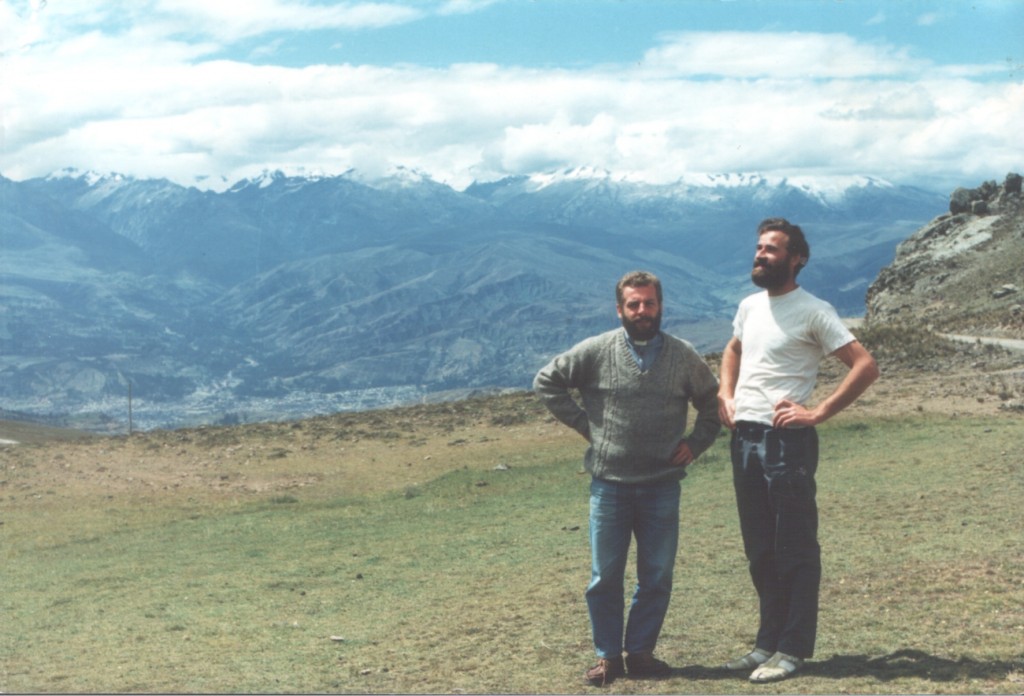
Firm in the Faith, Even unto Death
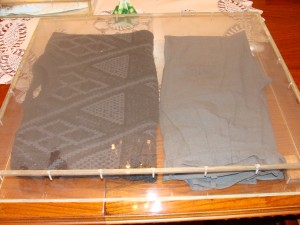
On August 9, after Mass, Miguel Tomaszek and Zbigniew Strzałkowski were taken from the Pariacoto friary and led to the town hall. There the terrorists put them in the friars’ own jeep, together with Sister Bertha Hernández from the religious community of the Handmaids of the Sacred Heart of Jesus, who of her own volition went with them. Before they crossed the bridge to Cochabamba i Huarez, the terrorists pushed Sister Bertha out of the vehicle and drove the friars to a place called Old Town (Pueblo Viejo), near the cemetery. There they executed Fr. Miguel by a gunshot in the neck and Fr. Zbigniew with two shots, one in the back and the other in the head. They also killed the mayor, Justino Masa.
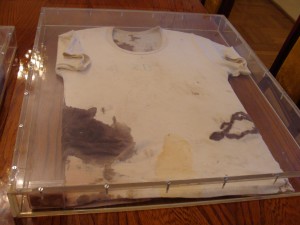
When they were taken prisoner, they were careful to protect the three postulants, telling them to go to the chapel to pray and not to leave it. When they burst in, the terrorists asked about other priests. Miguel and Zbigniew lived what Jesus said to His disciples on the Mount of Olives: “If you are looking for me, let go of these.” They also told their captors: “We are the priests here; don’t touch the young men.”
Shining Path terrorists killed the missionaries because, according to them, “They deceived the people”. Besides, they added, “They preach peace and tranquilize the people with religion, through the rosary, Masses, reading the Holy Scripture, and because of that, the people don’t want revolution. We must kill those who preach peace. Religion is the opium of the people, a way of keeping them under control.”
Grateful Memory
“The blood shed by the two young Friars on August 9, 1991, was united with the blood shed by Saint Maximilian Mary Kolbe (only five days later), a brother from the same Province. The victims, who are esteemed because of the same martyrdom in love and faith, show us how to continue on the ideal path we have chosen, and instill in the lives of each of us and our families the desire to be living and true witnesses.” -Friar Lanfranco Serrini, Minister General OFM Conv., Circular Letter for Christmas of 1991
“We could see the valuable work of the friars. Now we must keep moving ahead, trusting that the will of the Lord is that we work for a better world for everyone. It is sometimes hard to accept, but the Lord, in his infinite wisdom, is able to make sense of everything. Friars like Miguel and Zbigniew leave us a beautiful memory, of those who left their home, their family, their country and their culture to come to share the love of God with our brothers in the Andes. That memory will continue to encourage all of us who, like them, believe we find Christ in the suffering faces of our brothers and sisters.” -Laureano del Castillo, Director of Rural Educational Services, Lima, August 20, 1991
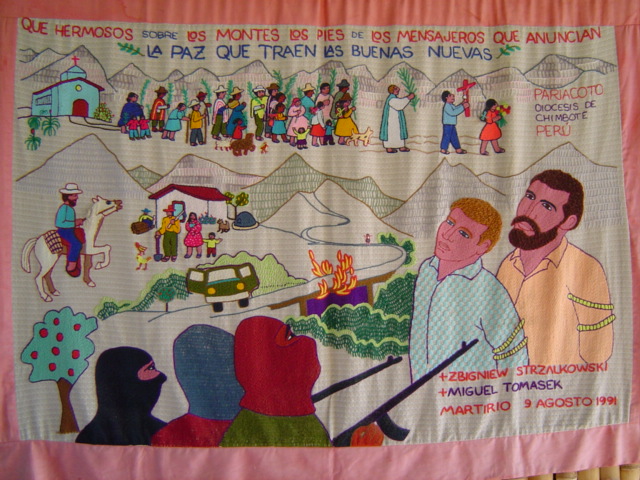
“They were our spiritual guides.” – Nancy Ramos and Alberto Baltazar, coworkers in Catholic Charities, Pariacoto, August 14, 1991
“I remember their enthusiasm for the Franciscan missionary vocation…and their willingness to serve, even though they were often all tired out.” – Cristian Castro, candidate to OFMConv., Pariacoto, October 26, 1991
“I can’t believe what happened. It seems like a dream. I am impressed once again by Miguel and Zbigniew’s fidelity to God and to the people, and the desire to be true to what they preached. I think they were conscious of the danger, but they remained there until the very end. That’s not by accident; it is a gift. Because they were always open to the movement of God in their lives, they were able to respond to the gift received.
“I saw Zbigniew a few days before they were martyred, and asked him if they had received threats; he just smiled and said: ‘We cannot abandon the people. You never know what may happen, but if they kill us, bury us here.’
“I saw Miguel one month before. He lived as though nothing was going on; he was immersed in God. He was a contemplative man, dedicated to children and young people. And Zbigniew was a strong, brave man, who cared deeply for the sick. He spent so many hours on horseback taking the Eucharist and the word of God to the mountain villages. They both, as men of God, lived as though it was not yet their time; however, by the will of God, the hour came.” -Sr. Marlene Trelles, Peruvian Sister of the Congregation of the Handmaids of the Sacred Heart of Jesus, September, 1991
Conclusions

The bodies of Friar Miguel and Friar Zbigniew lie in the little church of the Lord of May, buried in two simple coffins, one on each side of the church facing the altar. It may be said that they were firm in the faith, joyful in charity, and faithful until death, three signal qualities of the lives of these two Conventual Franciscans.
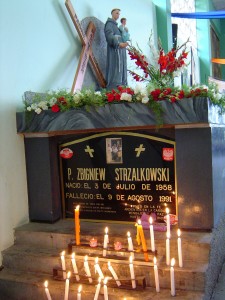
Now a new story begins; its unfolding is known only to God. Looking at the two tombs, we meditate on their simple gesture of Christian martyrdom; a new path is born from it: that of forgiveness. During the funeral, the Order’s General Assistant for Latin America forgave those responsible for the murder, saying, “We forgive, and if we have made a mistake tell us what it has been.”
Perhaps someday we will find witnesses who can give a precise account of the last moments and conversations of Friar Miguel and Friar Zbigniew. Right now, what we can see are their humble, serene and reconciled faces, faces that express peace, despite the brutal wounds from which their blood flowed.
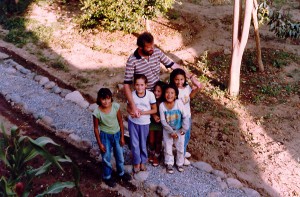
It is obvious that if they came here, it is because they wanted lovingly and abundantly to bring God to people. If it were not so they would have not persevered until the end. That’s why they gave their lives — they died loving and forgiving — they were not thinking of themselves. We can deduce that the main concern in their lives was God and the people, their dear peasants. It was to be close to the peasants that brought them close to death, and they never turned around; they remained faithful until death, a death that was presaged.
To understand the true meaning of the martyrdom of these two friars we have to listen to the voice of the Spirit.
Both friars had a great missionary spirit that manifested itself in a simple way in everyday life, though they had moments of weakness just like any normal person. They were able to live according to the Gospel and share the “five loaves and two fishes” and God added the rest.
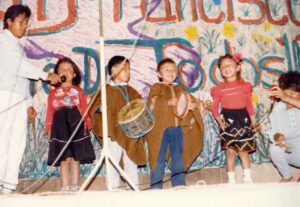
Friar Zbigniew had great sensitivity toward the sick, organizational skills, and a special gift for discerning socio-political situations. Friar Miguel had a special gift for understanding children and young people. He had other beautiful gifts too, like the gift of music that he used so well.
The missionaries began every day in Pariacoto with private prayer in front of the Blessed Sacrament in the chapel of the friary. The two dead friars were washed in the blood of the Lamb, and the witness of their lives and martyrdom is an encouragement for us in our weakness. It is good that the world, the Church, and the Order reflect on what the example of these martyrs has to tell us.
Indeed, our Order of Friars Minor Conventual needs to recover the example of the five protomartyrs of Morocco. It was surprising and appropriate that the Cardinal of Lima, in the nine days of prayers following the murder of two friars, referred to the Franciscan protomartyrs. In the same vein, the General Minister at that time, Lanfranco Serrini, mentioned in a letter to the whole Order that the witness of Friar Miguel and Friar Zbigniew place us once again in the face of martyrdom, which is so characteristic of the history of Franciscan spirituality.
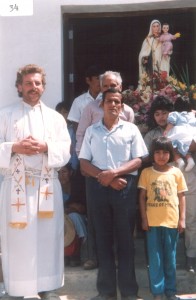
We have to ask ourselves on what foundation we want to build our life. What is the real meaning of “giving life,” of losing oneself? Are we ready and willing to risk everything, with a spirit of authenticity, generosity, and determination, even in the face of danger? If we are, that initial Pariacoto missionary plan, which resulted in the martyrdom of two Conventual friars, may well be a valuable paradigm for all of Latin America.
When I think about our Pariacoto mission the figure of Mary comes to mind, as she contemplates her Son on the Cross. She is the perfect model of a missionary life. She gives our Franciscan missionary activity a feminine sensibility, which brings a new kind of sensitivity and honesty leading to a radical evangelization without violence.
I will always thank God for the gift of these brothers who were close to me and with whom I shared a common dream – the world of the mountain people, materially poor, but rich in the values of the Gospel, who became part of my life.
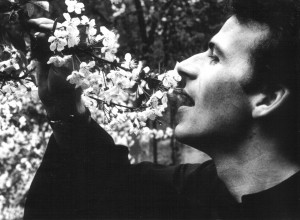
Thanks to Miguel for his ability to contemplate and see God in everything, with the soul of a child. Thanks to Zbigniew for his great humanity and strength of spirit which healed not only souls, but bodies.
Thanks to the Sisters of the Sacred Heart; without them we probably would not have persevered so long. Thank you because in our teamwork with you, we learned, we walked, we became acculturated, we became part of the people, and the people won our hearts.
Thanks be to God because He walks humbly with us despite our failings and weaknesses. After all these years, the sense of the mystery of what happened always remains in my heart, but today I dare to recall and to write the story in order to give witness and to learn that “Everything is grace.”
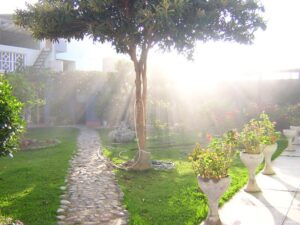
Miguel and Zbigniew did not leave a formal testament; they were surprised “along the way” by Sister Death. They left a testament which encompasses the history of those lived and died anonymously, and who also believed, fought, and worked for the heavenly Kingdom in Peru and in many corners of the world in various historical, political, and cultural and ideological contexts. The martyrdom of Miguel and Zbigniew is a fact, not lofty ideas or words; just like the embrace of the leper by Francis or the smile of John Paul I; or the meekness of Maximilian Kolbe in the death factory in Auschwitz; or the flight of an African woman from her country with belongings on her head and her children in tow; or the man who saw his house consumed by the flames. These are facts and actions that inspire us to be better people; that arouse a healthy passion for authenticity; that show us the face of Jesus calling out, “Follow me.”
Prayer
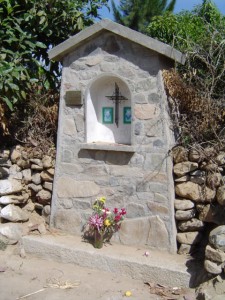
Lord, You anointed your sons Miguel, Zbigniew and Sandro
with the gift of the priesthood.
You sent them as messengers of the good news
and crowned them with the Palm of Martyrdom.
Glorify them also with the Crown of the Saints.
By their blood shed for You,
give us constancy in the faith,
protect our lives and give us the gift of peace.
Receive the the innocent victims of violence
into your kingdom
and grant them the everlasting reward.
Amen.
All of the photos connected to the life and death of Frs Michał and Zbigniew and the text on this page are the property of the Province of St Anthony and Bl. Jakub Strzemię, Order of Franciscan Minors Conventual [Franciscans], Kraków. The materials are copyright, and may not be reproduced without permission.
